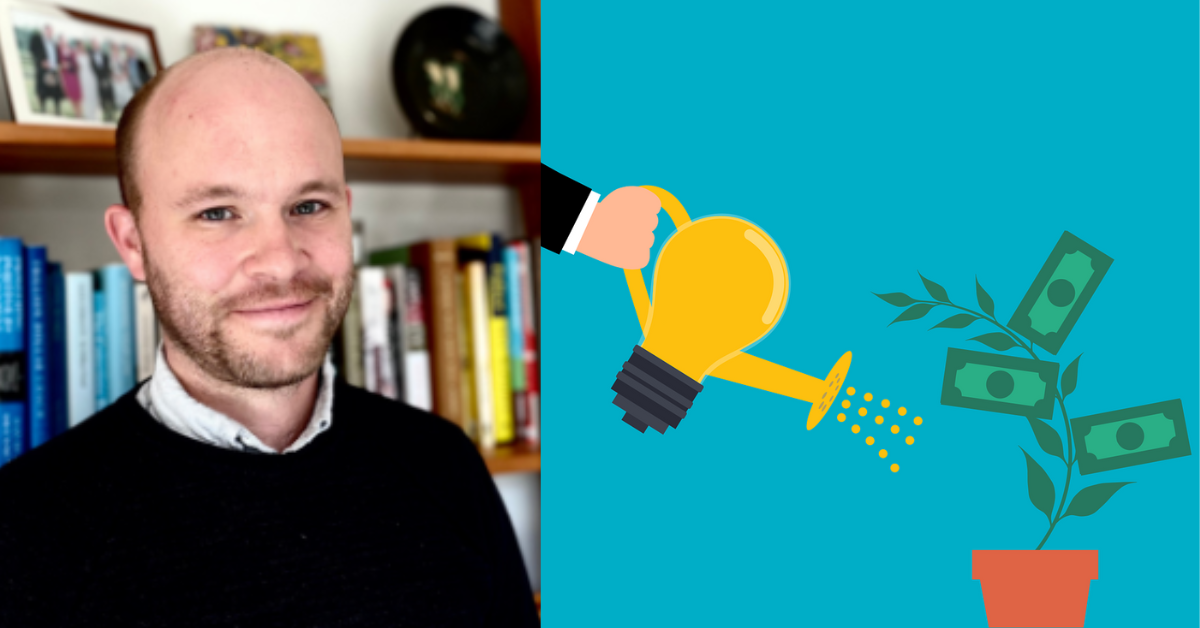Will Sarni: For water innovation to fly, we need a skunk works
 Will Sarni
Will SarniLockheed Martin's Advanced Development Programs, otherwise known as Skunk Works, was responsible for several innovative aircraft designs. Will Sarni believes the water sector can learn a lot from the development.
Innovation is lumpy
One of my favourite quotes is from William Gibson, Author of Neuromancer: “The future has arrived - it’s just not evenly distributed yet.”
In addition to being a fan of science fiction and the cyberpunk genre, Gibson's quote resonates with my view of innovation in the water sector and more broadly humanity’s relationship with water.
Innovation is not linear; it is lumpy. Some stakeholders, companies, individuals and non-governmental organisations (NGOs) are embracing innovation now. Meanwhile, many still need to be compelled to act, whether it is through public policy, a competitor, investors or an entrepreneur.
I am not one to wait and be patient, so I look for those that have embraced the future now. For me, this is a way to identify trends and more importantly, a path forward to solve wicked water problems.
I’m also a fan of aircraft innovation, perhaps because historically I have spent so much time flying. And it is within the aviation industry and the development of Skunk Works that presents a view on innovation we should consider for the water sector.
Kelly Johnson and Skunk Works
Skunk Works is the pseudonym for Lockheed Martin's Advanced Development Programs (ADP), formerly called Lockheed Advanced Development Projects. The name was taken from the moonshine factory in the satirical American comic strip, Li’l Abner.
Skunk Works was responsible for several innovative aircraft designs, beginning with the P-38 Lightning in 1939, followed by the P-80 Shooting Star in 1943. Engineers from Skunk Works subsequently developed the U-2, the SR-71 Blackbird, the F-117 Nighthawk, F-22 Raptor, and the F-35 Lightning II.
“Kelly Johnson and the Lockheed Skunk Works were so successful because they were given autonomy to experiment and had permission to ignore the status quo.”
The lead for Skunk Works was legendary aircraft designer, Kelly Johnson. His team were so successful because they were given autonomy to experiment and had permission to ignore the status quo.
While the technology innovation is what we remember, it was the process and culture that made it happen. It was a culture where the “art of the possible” was embraced and came to life.
Experimentation and failures were part of the process and were managed effectively; a dance of pushing experimentation and imagination, without risking lives along the way. It is an inspiring view of what is possible outside the traditional boundaries of business as usual.
The term "skunk works or skunkworks" is now widely used in business, engineering, and technical fields to describe a group within an organisation given a high degree of autonomy and unhampered by bureaucracy, with the task of working on advanced or secret projects.
Waterworks without the Skunk Works
The question is, how do we bring this thinking and process into the water sector? I acknowledge that there are no easy answers.
However, we need to move past the view that innovation is slow in the water sector because public health is paramount, and we can't take risks. For the record, I do understand why: returns on investment are long and the status quo basically “works”.
This all needs to change. It is even more critical as we struggle to operate under a global pandemic, feel the impacts of climate change, and manage systemic poor water governance and underinvestment.
We are not on track to achieve our commitments to Sustainable Development Goal 6, as well as address other water-related challenges such as impacts of water scarcity and poor quality on economic development, business growth and ecosystem and biodiversity health.
“So where are our Kelly Johnson’s for water? Who are the leaders that have embraced the future?”
So where are our Kelly Johnson’s for water? Who are the private and public sector leaders that have embraced the future and how do we shine a light on the “art of the possible”? They exist, and we need to provide greater support and acknowledge that they are the future of water.
There are no simple answers, but we must acknowledge that the status quo is not getting it done, and incremental progress is really not acceptable.


